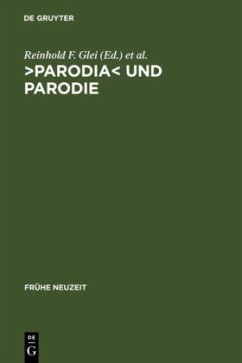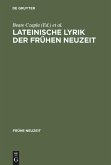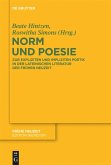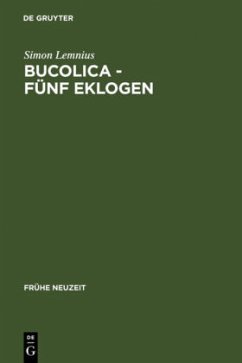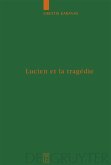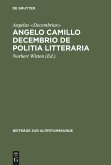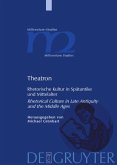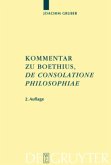Literary scholars have long been aware of the phenomenon of intertextuality in the early modern age and hence in neo-Latin literature. Yet so far there have been very few historical or systematic studies engaging with specific adaptation procedures operating between individual texts or classes of text. This volume presents an initial sequence of case studies on the use of intertextual writing strategies such as parody, contrafactum, or cento in the Latin literature of Europe from the 15th to the 17th century. They are based on new research approaches centering around text typology and the history of literary functions.
Das Phänomen der Intertextualität in der Frühen Neuzeit - und damit auch in der neulateinischen Dichtung - ist Literaturwissenschaftlern seit längerer Zeit vertraut. Gleichwohl fehlte es bislang an Studien, die sich in historischem oder systematischem Zugriff mit speziellen Verfahren der Adaptation von Einzeltexten oder Textklassen auseinandersetzen. Auf der Grundlage neuerer texttypologischer und funktionsgeschichtlicher Forschungsansätze wird jetzt erstmals eine Sequenz von Fallstudien zur Verwendung intertextueller Schreibstrategien wie Parodie, Kontrafaktur oder Cento in der lateinischen Literatur Europas zwischen dem 15. und dem 17. Jahrhundert vorgelegt.
Das Phänomen der Intertextualität in der Frühen Neuzeit - und damit auch in der neulateinischen Dichtung - ist Literaturwissenschaftlern seit längerer Zeit vertraut. Gleichwohl fehlte es bislang an Studien, die sich in historischem oder systematischem Zugriff mit speziellen Verfahren der Adaptation von Einzeltexten oder Textklassen auseinandersetzen. Auf der Grundlage neuerer texttypologischer und funktionsgeschichtlicher Forschungsansätze wird jetzt erstmals eine Sequenz von Fallstudien zur Verwendung intertextueller Schreibstrategien wie Parodie, Kontrafaktur oder Cento in der lateinischen Literatur Europas zwischen dem 15. und dem 17. Jahrhundert vorgelegt.
"Rich in examples, thorough in its theoretical analyses as well as in its bibiographical references, this volume is an indispensable handbook for anyone working on (or referring to) parody and intertextuality in middle-European early modern times. A comprehensive index of names enhances the usefulness of this book."
Veronika Coroleu in: Neo-Latin News 3-4/2008
Veronika Coroleu in: Neo-Latin News 3-4/2008

